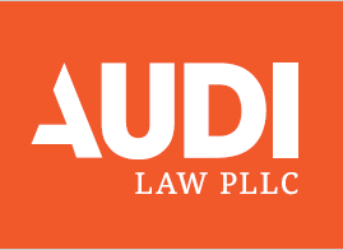How To Determine Whether A Bankruptcy Filing Is The Next Best Step
When your debts are piling high and you are struggling to keep up, you will want to know what your options are. This might mean bankruptcy. If bankruptcy is not the right option for you, at Audi Law PLLC in Hershey, I can help guide you through other debt relief options.
You deserve a fresh start; for you and your family. I know that the decision to file can be an emotional one. As an experienced bankruptcy attorney, I am here to guide you through what can otherwise be an intimidating bankruptcy filing. We will find a solution that matches your situation and aligns with your goals.
Chapter 7: Liquidation
- Pass the “means test”
- Not exceed the maximum income or asset value level
As long as you are current on mortgage and car payments, called “secured debt,” you can keep those items in a Chapter 7 filing. However, you may need to use a “reaffirmation” that resets the loan despite the bankruptcy. People who want their bankruptcy filing to go quick may opt for Chapter 7 if they qualify. Most of these cases are final in under six months.
Chapter 13: Wage Earner’s Bankruptcy
- Is for people who have higher incomes or have too much nonexempt property
- Requires the person filing to pay a portion of their debts back in three to five years
- Allows for all remaining debt at the end of the payment period to be discharged
If you don’t meet the debt or asset limits to qualify for a Chapter 13 bankruptcy, then you may have to file a Chapter 11 or “reorganization.” This is similar to a Chapter 13 in that you will pay off your debts through a plan, however it is more complex with more stringent filing requirements.
There are strict deadlines and specific forms that must be filed with either kind of bankruptcy. It is important that you meet with an experienced bankruptcy attorney in order to discuss your options and determine how to best proceed.
Other Options For Debt Relief
There are situations where bankruptcy is not the best option for you – whether you have too much income, too much equity or because you have other reasons for not wanting to file. As an attorney who also has significant collections experience, I know the way that creditors think. I can help you devise a plan to negotiate with creditors to pay off your debts.
Get The Help You Need
I know that being in debt is a stressful place. It can impact your day-to-day life. Constant creditor harassment can lead to anxiety and depression. But there are options that can wipe out your debt or get you on a payment plan that works. Call and let’s discuss what will help you: 717-707-5611. Located in Hershey, I help clients throughout the Hershey metro area and in the surrounding communities. You can also connect with me via website contact email.
My firm is a debt relief agency. I help people file for bankruptcy relief under the Bankruptcy Code.

